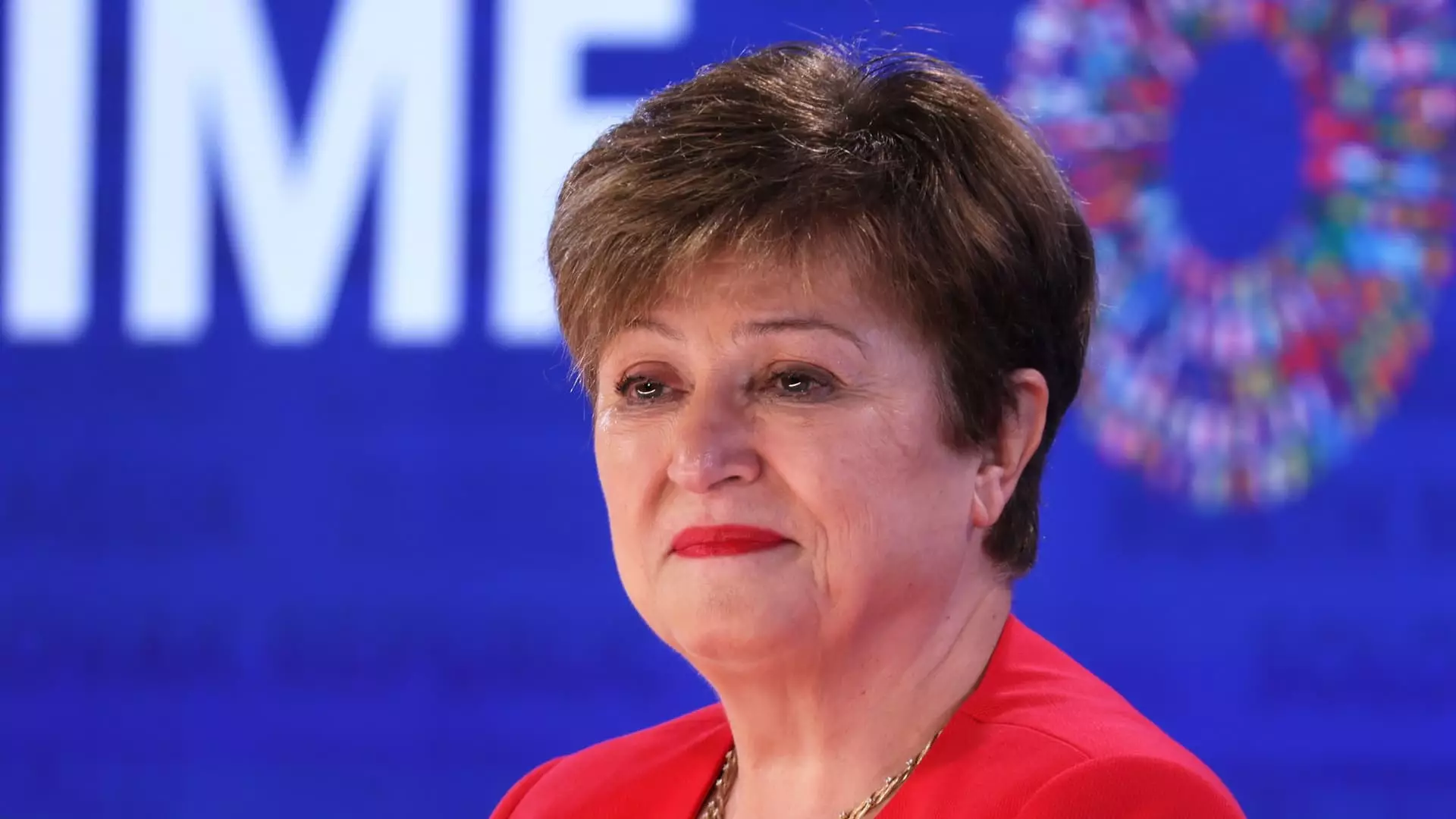As the world grapples with a post-pandemic recovery, the stark realities of high debt and stagnant growth pose significant setbacks to the global economy. IMF Managing Director Kristalina Georgieva recently illuminated these challenges during her interview with CNBC, emphasizing the precarious balance governments must strike in managing fiscal responsibilities while fostering economic growth. Her remarks serve as a timely reminder that despite some positive indicators in the economic landscape, the underlying vulnerabilities remain pronounced.
Georgieva’s observations underscore a critical truth: excessive borrowing has become commonplace among many governments, largely as a reaction to unprecedented global crises. While financial measures were necessary to stabilize economies during turbulent periods, the long-term implications of high debt loads are beginning to materialize. Georgieva characterized current economic growth as “anemic,” highlighting the urgent need for countries to prioritize fiscal responsibility. The challenge, she argues, lies in finding strategies that encourage growth without exacerbating debt levels—a delicate dance that many leaders have yet to master.
Moreover, Georgieva recognized that while major central banks have made strides in addressing inflation, the battle is far from won. Certain economies continue to experience unnaturally high prices, which contribute to a climate of social and political dissatisfaction. The disparity in inflation rates across different countries often leads to feelings of inequity, with the most vulnerable populations suffering the brunt of rising costs. “People feel worse off and angry,” she noted, reflecting a broader sentiment that economic recovery should not merely be measured in numbers but also in overall public sentiment and well-being.
As finance ministers and central bank governors approach the annual meetings of the IMF and the World Bank Group, the discussions will inevitably reflect these economic tensions. Topics such as poverty eradication and green energy transitions are crucial, but they must be viewed through the lens of financial stability, particularly in nations where inflation remains a critical concern.
One of the more troubling trends in recent years has been the shift towards protectionist trade policies, which Georgieva suggests may inhibit global growth. Nations that once thrived on free trade are now increasingly prioritizing domestic industries, a trend spurred by public dissatisfaction with globalization’s perceived failures. As the United States and the European Union impose tariffs on China, it raises valid concerns about the long-term viability of international trade as an engine for growth.
The dialogue surrounding these protectionist moves is not merely about economics but also reveals underlying societal fears. Many citizens perceive globalization as a failing system that led to job losses and diminished community support. Approaching these complex issues requires thoughtful consideration, as retaliatory measures could be counterproductive. Such policies might provide short-term gains for certain industries but could ultimately fall harder on consumers and businesses within those imposing countries, according to Georgieva.
Adding another layer of complexity to the economic narrative is the rise in geopolitical tensions, which Georgieva has identified as an essential risk factor for global financial stability. Recent conflicts, particularly in the Middle East, pose threats not only to regional economies but also to global energy markets. The interconnectedness of today’s financial systems means that instability in one area can ripple across the world.
Therefore, it becomes increasingly critical for economists and policymakers to assess the broader implications of this chaos. As Georgieva suggests, understanding the potential fallout from international conflicts is vital for conceptualizing strategies that safeguard economic stability and promote growth.
The economic landscape continues to present both opportunities and challenges. The insights shared by Kristalina Georgieva serve as vital signposts guiding us through turbulent waters. Addressing high debt levels, fostering sustainable growth, reconsidering protectionist policies, and managing geopolitical tensions will require concerted global efforts and comprehensive policy action. As stakeholders prepare for their discussions at the upcoming meetings, it is imperative that they remain attuned to these interconnected issues, ensuring that economic recovery is not only achievable but also equitable for all.


Leave a Reply